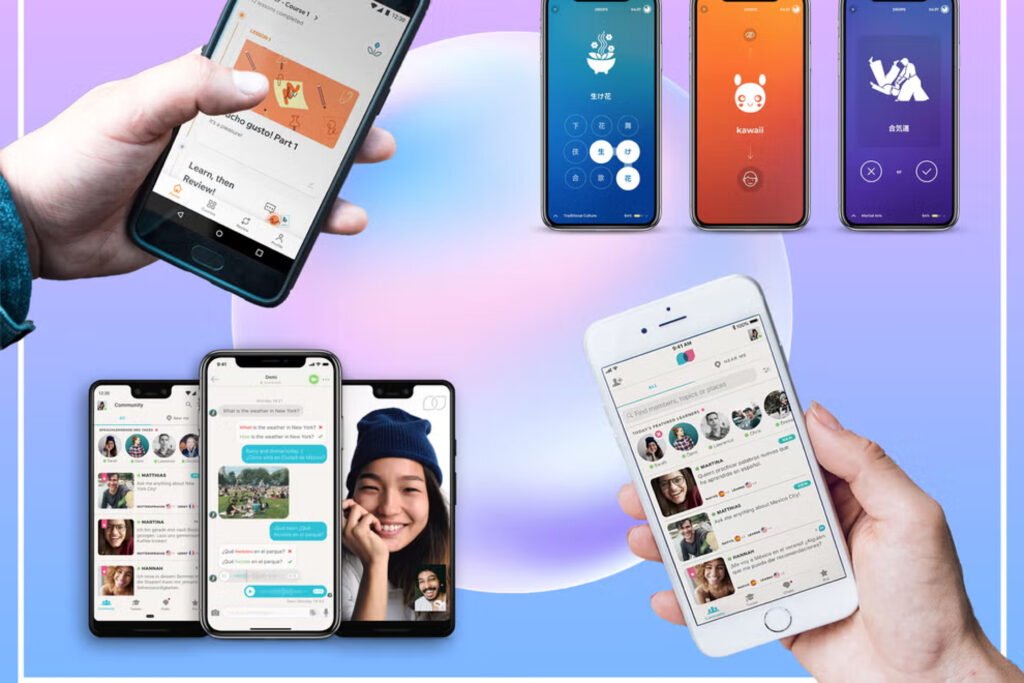Discover beautiful places all around you at TouristLookup

10 Easy Ways to Learn a Foreign Language
Learning a foreign language can be an exciting journey that opens up new horizons and enriches your life. While the task might seem daunting at first, there are plenty of easy and enjoyable ways to make the process smoother. Whether you’re a beginner or someone looking to brush up on your language skills, here are 10 easy ways to learn a foreign language.
Whether you’re drawn to the poetic cadence of French, the rhythmic flow of Spanish, or the intricate characters of Mandarin, the process of language acquisition is a transformative adventure that goes beyond mere words. In a globalized world where connections span borders, mastering a foreign language not only opens up communication channels but also provides a unique window into the culture, history, and nuances of a different society.
The idea of learning a new language can be both exhilarating and intimidating. However, the modern landscape of language education offers a myriad of accessible and enjoyable avenues for learners of all levels. From the convenience of language learning apps that turn your smartphone into a pocket-sized classroom to the immersive experience of connecting with native speakers online, there’s a method tailored to every learner’s preferences. In this article, we’ll explore 10 easy and effective ways to learn a foreign language, ensuring that your language-learning journey is not only successful but also enjoyable and sustainable in the long run. So, buckle up, language enthusiast – your linguistic adventure awaits!
Top Easy Ways to Learn a Foreign Language
Language Learning Apps

In the age of smartphones, language learning apps have become incredibly popular. Apps like Duolingo, Babbel, and Rosetta Stone offer interactive lessons and exercises that you can complete at your own pace. These apps often use gamification techniques, making the learning process feel more like a game than a chore.
Online Language Courses

Explore online language courses on platforms like Coursera, Udemy, and Khan Academy. These courses provide flexibility in terms of scheduling and allow you to learn from the comfort of your home. Many of them also offer a variety of languages to choose from, catering to learners with different interests.
Language Exchange Partners

Connecting with native speakers is an excellent way to learn a language authentically. Websites like Tandem and HelloTalk connect language learners worldwide, enabling you to practice your target language with a native speaker. This approach not only enhances your speaking skills but also provides cultural insights.
Immersive Learning

Immerse yourself in the language by watching movies, TV shows, or listening to music in the target language. This exposure helps you get accustomed to the rhythm, intonation, and colloquial expressions. It’s a fun and effective way to learn while enjoying the cultural aspects of the language.
Flashcards and Vocabulary Apps

Building a robust vocabulary is essential for language learning. Use flashcard apps like Anki or Quizlet to reinforce your memory of new words. Create your flashcards or explore pre-made decks to make the learning process more efficient and enjoyable.
Read Books and Articles

Reading is a fundamental aspect of language learning. Start with children’s books, simple articles, or short stories in your target language. Gradually progress to more complex material as your proficiency improves. Reading not only enhances your vocabulary but also exposes you to different sentence structures.
Language Immersion Programs

If circumstances allow, consider participating in a language immersion program. Travel to a country where the language is spoken and immerse yourself in the local culture. Language immersion provides a unique opportunity to practice your skills in real-life situations, accelerating your learning process.
Podcasts and Audiobooks

Turn your commute or daily walks into valuable language-learning time. Podcasts and audiobooks offer engaging content that you can listen to while on the move. Choose material that matches your proficiency level and gradually challenge yourself with more complex content.
Online Language Communities

Participate in online language communities and forums where learners and native speakers discuss language-related topics. Websites like Reddit, language-specific forums, and social media groups provide a platform to ask questions, share experiences, and connect with like-minded individuals.
Practice Regularly

Learning a language is a marathon, not a sprint. Set aside dedicated time each day to practice, even if it’s just for 15-30 minutes. Consistency is crucial for language retention, and regular practice helps reinforce what you’ve learned.
Learning a foreign language is a rewarding endeavor that requires dedication and a bit of creativity. By incorporating these easy and enjoyable methods into your routine, you can make the learning process more engaging and effective. Remember, consistency is key, and the journey itself is as valuable as reaching fluency. So, pick a method that suits your preferences, stay motivated, and enjoy the adventure of learning a new language!



